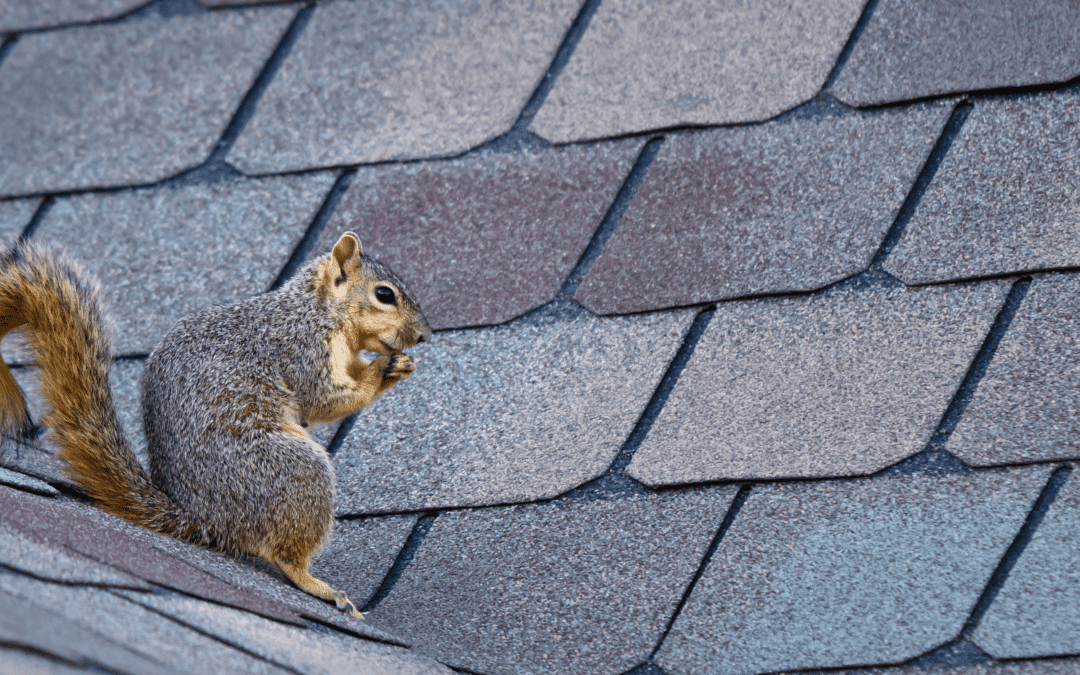August is here and as much as we don’t want to think about it, fall is right around the corner. As the days begin to get shorter and temperatures drop, wildlife creatures begin to prepare for the fall and winter seasons. Fall is the time when wildlife search for warm shelter and begin to stock up on food, sometimes leading them right to your home!
Here are some of the most common wildlife critters that can find refuge in your home for winter, along with some ways to prevent them from taking up residence in your home.
Squirrels
Squirrels like to “fatten” up in the fall as they get ready for the colder months. They often seek shelter in attics where they will make their nests and store their food. They are especially hazardous in homes because they have a tendency to chew through wires and wood, creating significant damage to your home.
Some ways to prevent squirrels:
- Install chimney caps or screens
- Don’t leave pet food and water out overnight
- Take down bird feeders in the fall as squirrels love to scavenge these for seed
- Trim back any limbs or branches that extend within 10 feet of your home
Raccoons
Like squirrels, raccoons also like to “fatten” up for the winter. Raccoons are nocturnal, which means they are more active at night. When the weather gets cooler, this causes raccoons to become more active and creative in their search for food. They will often find food in your trash cans and home and can often enter your house through the roof. They are known to seek shelter in either your attic or crawl space.
You can prevent raccoons by:
- Keep trash in bins with secure, locking lids
- Seal any entry points on the exterior of your home
- Rinse out trash cans once a month to help eliminate odors
- Install bright exterior lights to deter them from your yard at night
Rodents
Rodents, like mice and rats, will begin to be more active in the fall and you can usually hear them in your walls or attic. They seek shelter in your home because it supplies them with an available food supply throughout the winter.
Prevent rodents this fall by:
- Storing food in plastic or metal containers with tight lids
- Sealing up holes inside and outside the home
- Cleaning up spilled food immediately and washing dishes soon after use
- Keep compost bins as far away from the house as possible
Bats
Once the temperature dips below 45 degrees Fahrenheit, bats will begin their hibernation. While some species of bats do migrate south once the weather cools off, some will be in search of warm, dark spaces to roost that are hidden from predators. Unfortunately, they will often roost in the attic or chimney of your home.
You can prevent bats by:
- Installing chimney screens
- Using window screens and draft guards on doors and windows that go into the attic
- Sealing any openings in shingles and weatherstripping
- Making sure insulation isn’t worn down
Wildlife removal can be a difficult task to handle on your own, as there are some regulations for certain species. It is often best left to the professionals. If you suspect you have a wildlife problem, contact your local professional wildlife control company. These professionals will inspect your home to identify the animal problem. They will also provide you with the best plan of action to remove nuisance wildlife and prevent it in the future.

